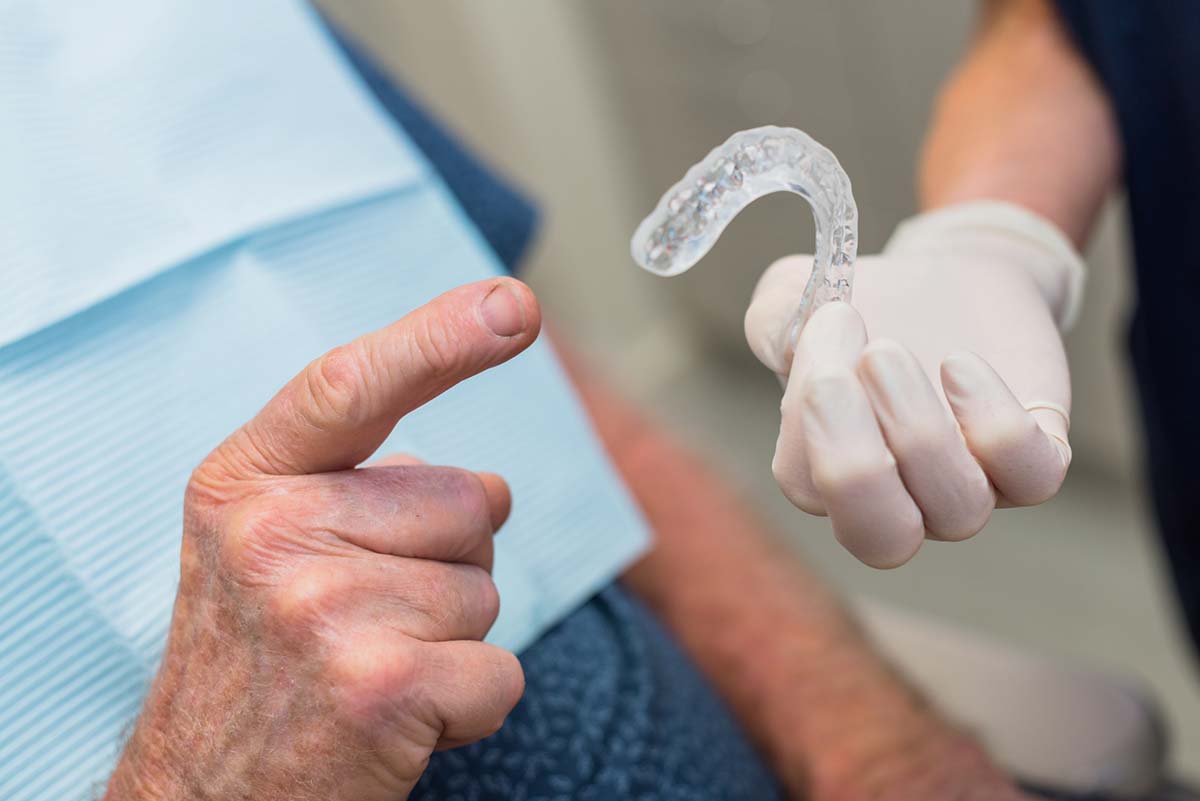TMJ & Bruxism
TMJ is short for temporomandibular joint disorder.
This is a condition affecting your temporomandibular joints, hinging your jaw in place.




When these joints are healthy, they allow you to open and close your mouth freely and talk and eat comfortably. However, if these joints become inflamed, it can cause pain, making it tricky to move your mouth or eat without discomfort.
Often, the disorder is associated with a condition called bruxism, where you clench and grind your teeth. It’s not exactly clear why some people develop bruxism, but it is often associated with stress and anxiety. While some people will clench their teeth during the day, bruxism tends to be a nocturnal disorder.
What Are the Signs of TMJ and Bruxism?
These conditions can cause a range of symptoms, including frequently waking up with an aching jaw or toothache. You may notice your teeth have begun to look worn or chipped as you grind them away, or they look shorter than before. As your tooth enamel wears becomes worn, you may notice your teeth become more sensitive to hot and cold foods and drinks. In addition, teeth grinding and clenching can cause gum recession. Another common symptom is waking up with a chronic headache, facial pain or even pain affecting your neck and shoulders. You might develop earache or tinnitus.
Diagnosing and Treating TMJ and Bruxism
If you are concerned you may be clenching and grinding your teeth or have a painful jaw, make an appointment to see our dentist here at Jetty Road Dental Clinic. We can examine your jaw and teeth and, if needed, take diagnostic images to assess your jaw joints more closely. Once we have a diagnosis, we can provide treatment for this problem and other useful advice.
Treating TMJ and Bruxism
These conditions are often treated simply using a custom-made night splint or night guard, made from a clear plastic material and fitting comfortably over your upper teeth. The night guard prevents your teeth from contacting, so your lower teeth slide harmlessly against the night guard. It prevents further damage to your teeth and will help to relieve discomfort affecting your jaw joints. Some people only need to wear a night guard for a short while, as this is enough to break the habit, while others may need to wear it in the longer term. If bruxism has damaged your teeth, we can discuss suitable dental treatment to protect and restore affected teeth so you can bite and chew food comfortably.